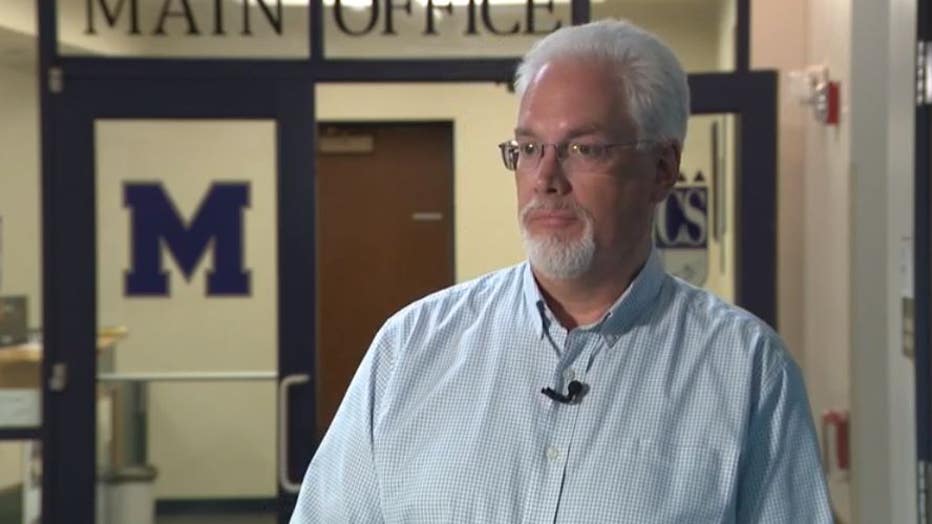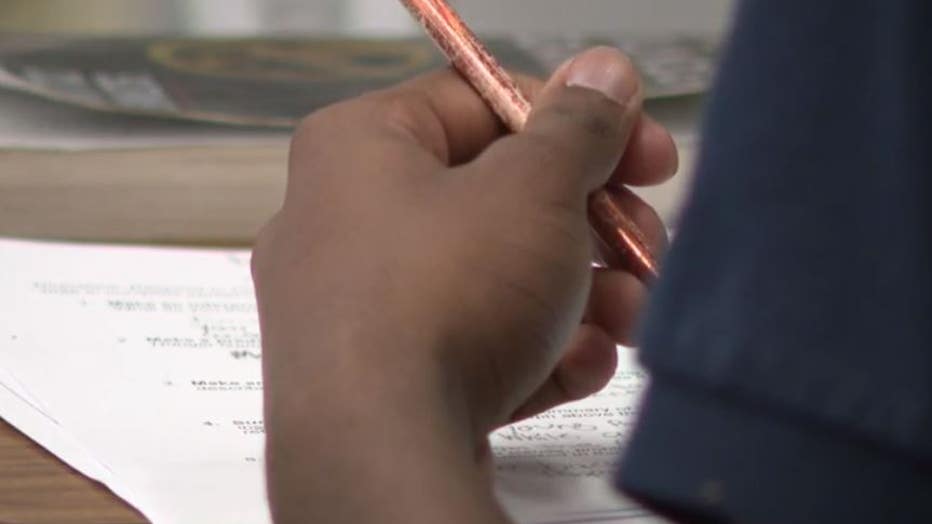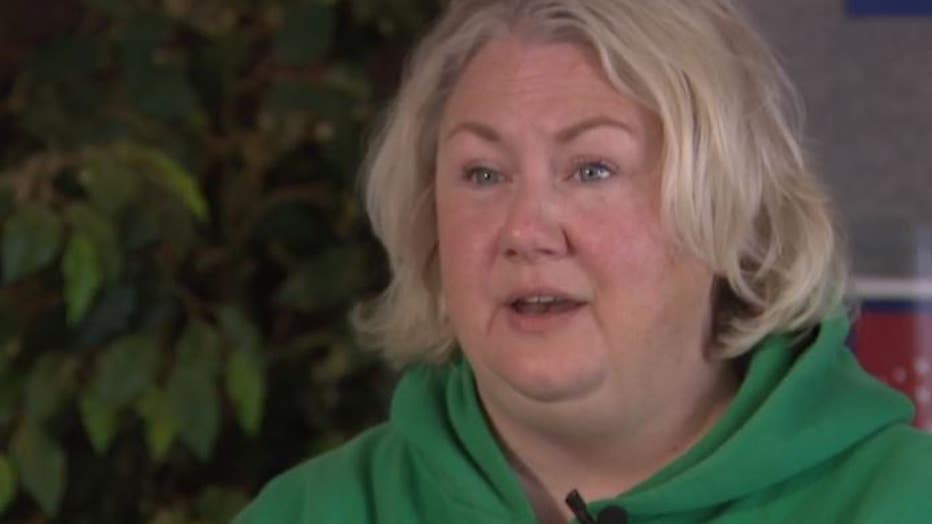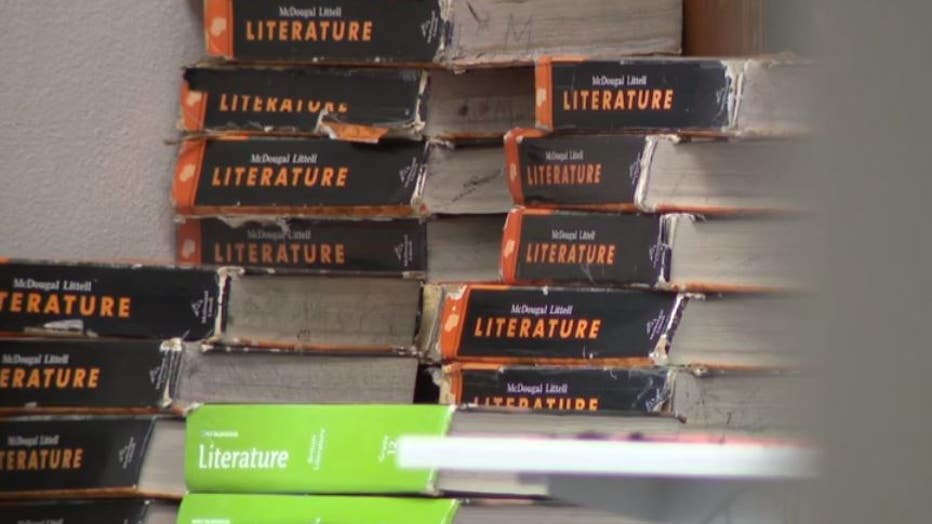Public schools funding; Wisconsin Legislature OKs $1B more, vouchers
Wisconsin Legislature approves more funding for private school vouchers, pledges $1b for public schools
Schools across the state are on the cusp of getting more money. The Wisconsin Legislature sent the governor a bill to pump more money into private school vouchers, part of a deal that will add $1B to the state budget for public schools.
MADISON, Wis. - Schools across the state are on the cusp of getting more money. The Wisconsin Legislature sent the governor a bill to pump more money into private school vouchers, part of a deal that will add $1 billion to the state budget for public schools.
First, the governor needs to sign the bill passed by both the Wisconsin Senate and Assembly on Wednesday, June 14. The Milwaukee teachers' union, the Milwaukee Teachers' Education Association (MTEA), urged him not to sign it.
"We can't have the public education governor of this state at the table saying that he's going to participate in the education hunger games of Wisconsin and sacrifice the vast majority of public school students and public school families and public school voters," said Amy Mizialko, MTEA president. "Public tax dollars don't belong in private schools, period."
"Tell that to the 45% of Milwaukee parents who are choosing choice and charter schools," said Jim Piatt, Messmer Catholic Schools president. "Are you really going to tell them that they have to be forced into one monopoly as a system and do it your way because that's what you think you should dictate as an organization? I don't think that's justifiable."

Jim Piatt, Messmer Catholic Schools
Roughly ninety-eight percent of Messmer Catholic Schools students get a voucher. That's Wisconsin taxpayer money paying for the private schooling.
"In our case here at Messmer, parents also want a faith-based education as part of their kids' formation, along with high-quality STEM and English and social studies and science offerings. And we're accountable to deliver on that, and parents have choices if we don't," said Piatt.
Governor Tony Evers (D-Wisconsin) negotiated the deal with Republican legislative leaders. It gives Republicans something they requested: more money for students in what's officially called the "Private School Choice Programs." It also gives more assistance to charter schools. As part of the deal, it also gives something the governor has pushed for: more money for public schools.
Right now in Wisconsin, a K-8 voucher is $8,399, and for high school, it's $9,045. The new numbers will bring that up $1,000 for K-8 to total $9,499 per student; and $3,000 in high school, to total $11,993 per student.
Piatt said they are educating at lower cost to taxpayers than public schools, and the new funds will help close that gap.
"Closing that gap partway from comparable public school funding will allow us to more appropriately retain, compensate and train our teachers," said Piatt. "We have wonderful staff, but operating at a 40% plus gap on funding has made that very difficult."
Assembly Speaker Robin Vos (R-Burlington) says the new funding for choice and charter schools will total $280 million dollars and help the private schools in the choice programs be able to increase capacity and allow 20,000 more students to attend those private schools.
SIGN UP TODAY: Get daily headlines, breaking news emails from FOX6 News
The school funding deal includes $1 billion more for public schools. That money will be included in the next state budget, which usually goes into effect in July.

The Milwaukee Teachers' Education Association and Wisconsin Public Education Network say the $1 billion additional funding for public schools falls well short of keeping up with inflation and what kids need.
"Superintendents across the state are telling our governor right now that it puts them underwater," said Mizialko. "We have a state surplus of over $7 billion. That money belongs to the public good, to the social contract of public education in this state and to our students."
"We cannot have a governor who campaigned on public education as a public good, allowing this kind of injustice in an agreement. And we’re saying to him with one voice: he has to take a breath and take a step back, and reassess," Mizialko added. "What we have in front of us is unacceptable and it sells out public education in every single community in this state. We will not sacrifice our students."

Amy Mizialko
"I don’t want to take a dollar away from my public school colleagues or those children in those schools. They deserve the best, but why are you trying to take money from kids who often have tremendous disadvantages because their parents don’t want to be forced into one monopoly" asked Piatt.
Education funding became the deal-maker that broke weeks of stalemate on a different topic and a different bill. Republicans and the Democratic governor could not agree on a bill on shared revenue, which is state money sent back to local governments. Both sides finally came to agreement on that bill when they brought in a separate topic, this school funding deal that boosts money for both public schools and also boosts money for private schools joining the state's choice program.
The Wisconsin Assembly and Senate passed the school bill with all Republicans voting for it along with two Democrats in the Senate and two Democrats in the Assembly. All four Democrats were from Milwaukee: State Sen. LaTonya Johnson, State Sen. Lena Taylor, State Rep. Sylvia Ortiz-Velez and State Rep. Kalan Haywood

After passage of both the shared revenue bill and the school funding bill, Evers tweeted: "It’s my job as governor to always work to do the right thing when it matters most. We’re securing over $1 billion for our kids and our schools to improve reading and kids’ mental health while making historic investments in our communities. This is a win for Wisconsin."
The Republican who introduced the school funding bill, State Sen. Duey Stroebel (R – Cedarburg) wrote in a statement: "This historic investment makes sure every child is provided a quality education and has the chance to succeed no matter their zip code…SB 330 closes the funding gap for private schools participating in the parental choice programs and gives parents more opportunities to decide which school best fits their child’s needs. Wisconsin is making great strides towards establishing funding parity for all K-12 students with the passage of this piece of legislation."

